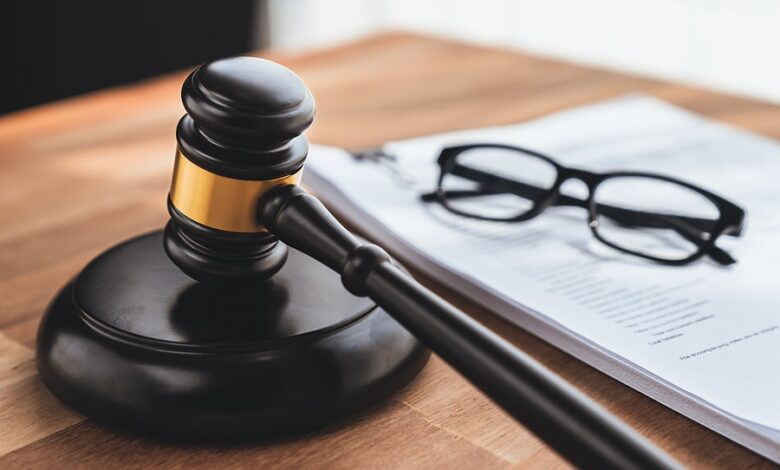How a Lawyer Can Help You Fight Domestic Violence Charges

Did you know that nearly one in three women and one in four men have experienced rape, physical violence, or stalking by an intimate partner in their lifetime? Approximately 5 million acts of domestic violence occur annually in the US against women aged 18 and older, with over 3 million involving men.┬Ā
Domestic violence charges can be exceedingly distressing to any defendant. It is a serious matter that can have significant consequences, both legally and personally. Domestic violence defense lawyer Robert B. Fisher says when you have been charged with domestic violence, choose a criminal defense lawyer with the experience and dedication to make a difference.
Finding a trustworthy lawyer can be very helpful in creating a defense plan that fits your specific case. Beyond helping you gather proof, your lawyer will also protect your future from being threatened by false accusations.┬Ā
This article will show the role of a lawyer in helping you face domestic violence charges.
Understanding Domestic Violence Charges
Domestic violence generally refers to the physical abuse, threats, or emotional abuse of a partner or family member.
There are different laws employed by each state to prevent domestic violence from happening to people. Individuals who commit acts of cruelty or violence may face criminal charges or misdemeanors. If you are found guilty, you might have to pay a fee or do what the court says.┬Ā
You could also go to jail for a domestic violence charge. It could hurt your job, image, and relationships. You may also be forced to attend mandatory programs of counseling or anger management.
The Importance of Legal Representation
Legal representation provides emotional relief as it gives you a buffer to avoid the uncertainty of court proceedings. Your lawyer will talk to the officials on your behalf, represent you in court, and tell you what your choices are. In times of difficulty, it is important to have someone you can rely on.
According to https://www.sanchezburke.com/, if you believe you are under investigation for a crime or have been arrested, you should obtain legal representation as soon as possible. By waiting, you are putting yourself at greater risk.
Having a lawyer increases your chances of winning and also protects your mental state as you face domestic violence charges.
Building a Strong Defense Strategy
You need to build a strong case if you are charged with domestic violence. Figure out as much as you can about what happened, like when it happened, what was said, who saw it, and so on.┬Ā
You should be able to provide your lawyer all details of the events before the alleged physical altercation or domestic violence. Was there a preexisting cause for conflict? Or did you just act to defend yourself? Your lawyer will be able to determine the best course of action by accounting for these factors.
Make your lawyerŌĆÖs job in defending you easier by honestly giving out important case details. The more they know about your case, the better they can prepare a defense that fits your needs.
Challenging Evidence and Witness Testimonies
In defense cases, it is important to weaken the evidence brought against you by challenging the testimonies of the prosecutionŌĆÖs witnesses. Your legal representative┬Ā will scrutinize each and every piece of evidence produced against you by the prosecution in search of flaws, inconsistencies of logic, or other mistakes pointing to the lack of credibility of the person who accused you.
Your lawyer will also look over witness statements to see if they were written with any biases or ulterior goals that might make them less reliable. Your lawyer can expose contradictions and convince jurors to recognize how an opposing witnessŌĆÖs perception might be flawed. This action creates reasonable doubt in the witnessŌĆÖ statements and can weaken the case of the prosecution.
Your lawyer can fight any evidence against you, including images or records, by showing proof that supports your case. They could also call in experts to talk about how specific things affected the circumstances in your case. You and your lawyer can work together to develop a solid defense that goes against what the prosecution says.
Dealing With the Legal Process
Once the evidence and witnesses have been addressed sufficiently, it is important to know the legal process. The initial step involves filing the required paperwork. You donŌĆÖt have to worry about committing any mistakes since you can ask your lawyer to help you fill out the paperwork accurately.┬Ā
Preliminary hearings follow, where the case is presented by the prosecution. This is the phase of the legal proceedings where the skills of your lawyer will be tested. Your lawyer will help you with different legal issues in court and prepare you for any questions you might be asked.
During the process, your lawyer will keep you informed about due dates and what to expect. The lawyer will also attempt to negotiate plea deals or discuss potential trial strategies if the case proceeds to trial.
Exploring Possible Defenses
In matters relating to domestic violence charges, you need to be familiar with the available avenues for defense. One may argue that it was a case of self-defense, given the imminent threat.
You could also say that you are being falsely accused and the charges against you are a mistake. When there is evidence of consent or mutual aggression, those circumstances become significant points in oneŌĆÖs defense.
You can also show that you didnŌĆÖt mean to hurt anyone by showing that you didnŌĆÖt intend to do so. Your lawyer can help you look into these remedies and come up with a plan that works for you.
You shouldnŌĆÖt discuss your case with anyone but your lawyer. Whatever you say could be used against you. If you are accused of domestic abuse, it is a serious matter, but a competent lawyer can help you fight the allegations and work toward a good outcome.
A lawyer can look at your case, challenge the evidence, go to court with you, and assist you in safeguarding your rights during the whole legal procedure.





